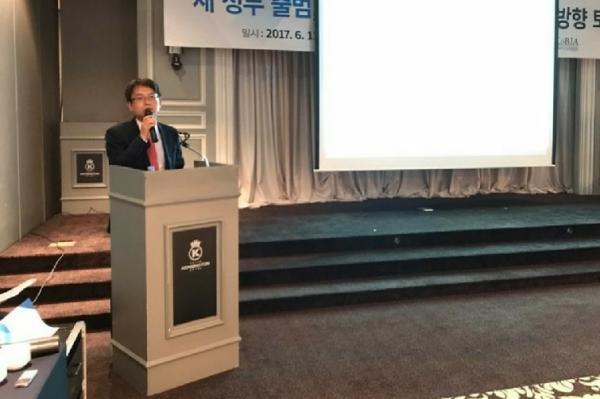The nation needs to set up an independent organization responsible for developing candidate substances of new drugs, to be co-funded by the government, private investors and universities, an expert said Wednesday.
Ha Kyung-sik하경식, a senior fellow at CJ HealthcareCJ헬스케어 made the proposal at a workshop discussing the direction of bio-medicinal industry upon the inauguration of the new government, hosted by Korea Biomedicine Industry Association(KOBIA)한국바이오의약품협회.

Despite the increasing number of clinical trial pipelines in Korea’s bio and pharmaceutical industry, the approval rate of new drugs is low due to the low quality levels of original technology, which explains why the nation needs a separate organization exclusively responsible for the matter, according to Ha.
“Korea is in the ninth place in the world regarding the number of domestic bio and pharmaceutical patent registration, but the quality level is in the 12th place,” Ha said. “It is indirect statistics to show the low quality level of original bio and pharmaceutical technology in our country.”
According to the “tech level of biotechnology patent registered in the U.S. by nation in 2010-2014” in 2015 Biotechnology White Paper released by the Ministry of Science, ICT and Future Planning (MSIP)미래창조과학부, the number of patent registration by Korea totaled 952 cases, ranked in the ninth place, and its technological skill was 313.21 points, the 12th place. Scientific American Worldview, which releases global ranking in the biotechnology area every year, put Korea’s biotechnology at the 24th place.
Accordingly, He claimed that to improve the quality of original technology, the nation should establish an organization specialized in the research and development of bio-medicine products so that basic researches at universities and other institutions could lead to clinical trials for developing new drugs.
He proposed for the joint investment by universities, government and investing institutions (or pharmaceutical companies) at a ratio of 40%-30%-30 percent, adding that universities should find out promising basic research subjects and conduct joint research with the industry with the relevant schools taking the lead in performing non-clinical and Phase 1 clinical trials.
"If a company makes a licensing-out contract worth 500 billion won ($444 million) with a global bio company, revenues can be allocated to universities and investors by their equity ratios,” He said. “The R&D expenses of domestic drugmakers are inferior compared with those of global companies, as reflected in the gap of their technology power. Korean technological level has shown significant differences with the U.S. and Europe, while that between Korea and China has been rapidly narrowing.”

